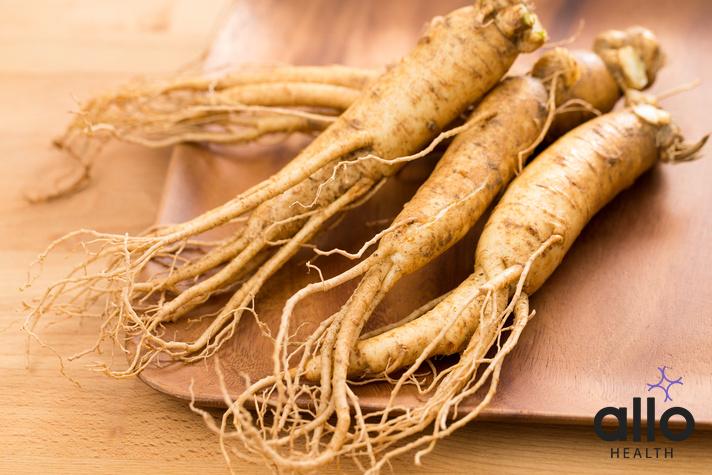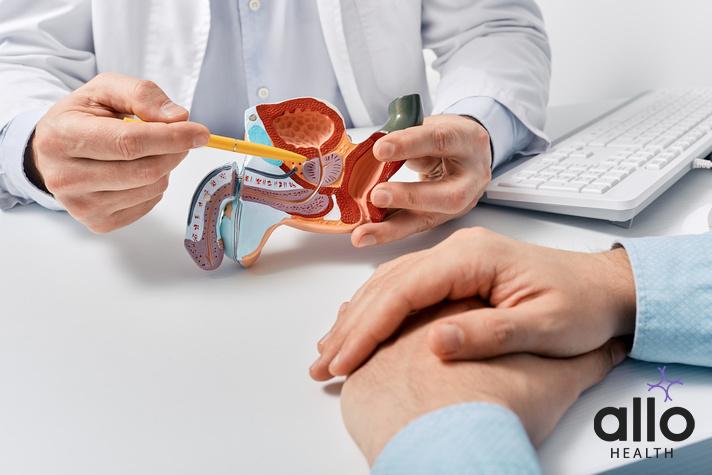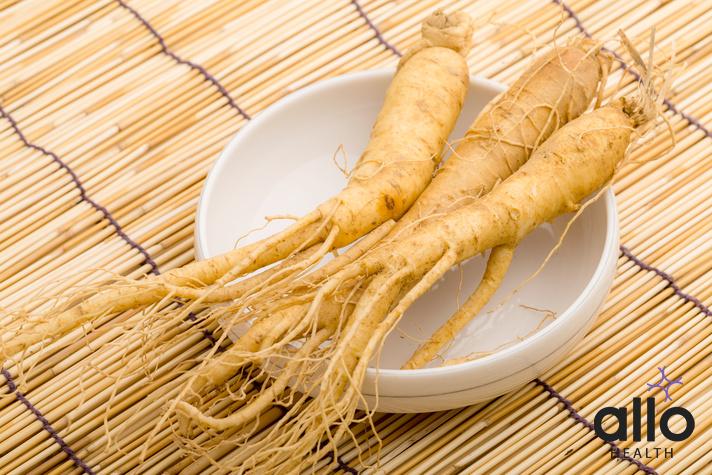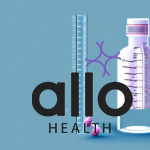Ginseng and Prostate Enlargement: The Link and Potential Benefits

Allo Health is dedicated to personalized well-being, offering support and trusted information tailored to individual health goals. The platform emphasizes human-generated content, led by a distinguished medical team of experts, including physicians and sexual health specialists. Their commitment to credibility involves rigorous fact-checking, authoritative research, and continuous updates to ensure accurate, up-to-date information. Allo Health's unique approach goes beyond conventional platforms, providing expert-led insights and a continuous commitment to excellence, with user feedback playing a crucial role in shaping the platform's authoritative voice.

Dr.Sushma.V completed MBBS degree from BGS GIMS,bangalore
Why This Was Upated?
Our experts continually monitor the health and wellness space, and we update our articles when new information became available.
Updated on 12 April, 2024
- Article was updated as part of our commitment to diversity, equity, and inclusion.

"The following blog article discusses alternative medicine practices and their potential effects or benefits. However, it is important to note that the information provided is for general educational purposes only and should not be considered as medical advice or a substitute for professional guidance from a qualified healthcare professional. Before considering any alternative medicine practices or treatments, it is recommended to consult with a healthcare professional.
Book consultation
Alternative medicine encompasses a wide range of practices that may not have undergone rigorous scientific evaluation or received widespread acceptance within the medical community. The effectiveness, safety, and appropriateness of alternative medicine practices can vary significantly depending on the individual, their specific medical conditions, and other factors.
It is important to approach alternative medicine practices with caution and skepticism. Some practices may carry potential risks or interact with existing medical treatments. A healthcare professional can provide guidance based on your medical history, evaluate the available evidence, and offer informed advice regarding the potential benefits and risks of alternative medicine practices.
Individuals with specific medical conditions, allergies, or taking medications should exercise particular caution when considering alternative medicine practices. Some practices may have contraindications or adverse effects, and it is essential to discuss these potential concerns with a healthcare professional before pursuing any alternative treatments."
Prostate enlargement, medically known as benign prostatic hyperplasia (BPH), is a common condition affecting men as they age. Characterized by the swelling of the prostate gland, BPH often leads to troublesome urinary symptoms, impacting the quality of life. In recent years, there has been growing interest in natural remedies like ginseng for managing prostate health. This article delves into the relationship between ginseng and prostate enlargement, exploring its potential benefits and considerations.
What is Enlarged Prostate?
- Enlarged prostate, also known as benign prostatic hyperplasia (BPH), is a common condition characterized by the non-cancerous growth of the prostate gland. This gland, essential for male reproductive health, surrounds the urethra and produces fluid that nourishes and transports sperm.
- With age, the prostate gland may enlarge, squeezing the urethra and causing urinary symptoms such as frequent urination, painful urination and difficulty initiating or stopping urination. BPH can significantly impact the quality of life, leading to annoying urinary tract symptoms and complications like urinary tract infections. While considered a benign condition, severe cases of BPH can result in the cessation of urination, necessitating medical intervention.
- Understanding BPH and its symptoms is crucial for timely diagnosis and management, involving a combination of conventional treatments, environmental medicine approaches, and potentially natural supplements like ginseng to promote prostate health and overall well-being.
Treatment Options for Enlarged Prostate
Treatment options for enlarged prostate, or benign prostatic hyperplasia (BPH), vary based on the severity of symptoms and individual health factors:
Medications:
- Alpha-blockers and 5-alpha-reductase inhibitors are commonly prescribed to relax prostate muscles and shrink the gland, respectively.
- These medications help alleviate urinary symptoms and reduce prostate weight.
Surgical Interventions:
- Transurethral resection of the prostate (TURP) involves removing excess prostate tissue through a surgical procedure.
- Laser therapy and prostate artery embolization are alternative minimally invasive techniques for reducing prostate size and relieving symptoms.
Natural Remedies:
- Ginseng supplements, particularly Korea ginseng, may offer benefits for prostate health by controlling prostate cell growth and boosting testosterone levels.
- Environmental medicine approaches, including dietary modifications and colon therapy, emphasize lifestyle changes to support overall prostate health.
Monitoring and Lifestyle Changes:
- Regular monitoring of prostate health is essential, including prostate-specific antigen (PSA) testing and digital rectal exams.
- Lifestyle modifications such as maintaining adequate zinc levels, managing cholesterol levels, and incorporating exercise can also contribute to prostate health.
Combination Therapy:
- In some cases, a combination of medications, natural remedies, and lifestyle changes may be recommended to effectively manage BPH and improve quality of life.
By considering these treatment options in conjunction with medical guidance, men can address symptoms of enlarged prostate and optimize their prostate health and overall well-being.
Link Between Ginseng and Enlarged Prostate

The link between ginseng and enlarged prostate lies in ginseng’s potential to modulate prostate cell growth and hormonal balance, thereby offering benefits for prostate health. Here’s how they are connected:
- Hormonal Regulation: Ginseng, particularly Korea Ginseng, contains compounds that may influence hormone levels, including testosterone. Adequate levels of testosterone are essential for maintaining prostate health, and ginseng’s ability to regulate hormone levels may contribute to managing moderate prostate enlargement.
- Control of Prostate Cells: Studies suggest that ginseng may exert control over the growth and proliferation of prostate cells. By modulating cellular activity at the cellular level, ginseng could potentially help in maintaining a healthy prostate weight and reducing the risk of benign prostatic hyperplasia.
- Zinc Content: Ginseng root and ginseng oil capsules serve as excellent sources of zinc, a mineral crucial for prostate function. Adequate zinc levels have been associated with a reduced risk of prostate enlargement and cancerous prostate tissue development. Incorporating ginseng into the diet can thus provide a decent source of this essential nutrient.
Ginseng’s effects on hormone levels, cellular activity, and zinc content highlight its potential role in supporting prostate health and mitigating the symptoms associated with enlarged prostate, such as frequent urination and urinary tract symptoms.
Note: It’s important to recognize that while ginseng shows promise in supporting prostate health, it is not a definitive solution for enlarged prostate. The scientific evidence supporting the effectiveness of ginseng in managing BPH is still limited and inconclusive.
Dosage and Administration of Ginseng

When considering ginseng for managing enlarged prostate, it’s crucial to adhere to appropriate dosage and administration guidelines to ensure safety and effectiveness. Here’s a concise overview:
Consultation with Healthcare Professional:
- Before starting any ginseng supplementation regimen, it’s advisable to consult with a healthcare professional, especially if you have pre-existing medical conditions or are taking medications.
Dosage Recommendations:
- Dosage recommendations for ginseng supplements can vary based on factors such as the specific product, concentration, and individual health status.
- Typically, doses range from 200 mg to 400 mg of standardized ginseng extract daily, taken orally.
Administration:
- Ginseng supplements are commonly available in various forms, including capsules, tablets, powders, and liquid extracts.
- It’s essential to follow the manufacturer’s instructions regarding dosage and administration.
- Ginseng supplements are often taken with meals to enhance absorption and minimize potential gastrointestinal discomfort.
Monitoring and Adjustment:
- Regular monitoring of symptoms and overall health status is important when incorporating ginseng into a prostate health regimen.
- Dosage adjustments may be necessary based on individual response and tolerance levels.
Combination Approaches:
- Ginseng supplementation can be integrated into a comprehensive approach to prostate health, including dietary modifications, lifestyle changes, and conventional treatments as recommended by healthcare providers.
By adhering to these dosage and administration guidelines and considering individual health factors, men with enlarged prostate can potentially benefit from incorporating ginseng into their wellness routine, aiming for improved prostate health and overall quality of life.
Note: While some studies suggest potential benefits, more robust research is needed to validate these claims and determine the optimal dosage and long-term effects. Therefore, individuals considering ginseng supplementation for enlarged prostate should approach it with caution and consult with a healthcare professional for personalized advice. Additionally, relying solely on ginseng without incorporating other proven treatments or lifestyle modifications may not adequately address the complexities of prostate health.
Effectiveness of Taking Ginseng for Enlarged Prostate
- Limited Direct Research: Most studies on ginseng focus on its general health benefits, such as improving energy levels, immune function, and reducing inflammation, rather than specifically targeting enlarged prostate or benign prostatic hyperplasia (BPH).
- Moderate Prostate Growth: Research suggests that ginseng may help moderate prostate enlargement by exerting control over prostate cells, potentially reducing prostate weight and symptoms associated with BPH.
- Anti-inflammatory Properties: Ginseng contains anti-inflammatory compounds which could theoretically benefit BPH symptoms by reducing prostate inflammation.
- Improve Symptoms: Studies indicate that ginseng supplementation could alleviate urinary tract symptoms, such as frequent and painful urination, thus enhancing the quality of life for individuals with BPH.
- Zinc Contribution: Ginseng, especially Korea Ginseng, serves as an excellent source of zinc, an essential nutrient for prostate health. Adequate zinc levels may support hormonal balance and cellular functions within the prostate gland.
- Need for More Research: Despite these potential benefits, there is a significant need for targeted, high-quality studies to conclusively determine ginseng’s effectiveness and safety for enlarged prostate treatment.
- Additional Benefits: Beyond prostate health, ginseng has been linked to boosting sexual health and testosterone levels, which can positively impact overall well-being.
While these findings are encouraging, more research is needed to fully understand the mechanisms and long-term effects of ginseng supplementation on prostate health. Consulting with a healthcare professional is advisable before incorporating ginseng or any supplement into one’s regimen, especially for individuals with existing medical conditions or those taking medications.
Risks and Considerations
Taking ginseng for enlarged prostate can have potential benefits but also entails risks and considerations:
- Interaction with Medications: Ginseng may interact with medications such as blood thinners and diabetes drugs, leading to adverse reactions and compromising treatment efficacy.
- Adverse Reactions: Some individuals may experience adverse reactions to ginseng, including gastrointestinal discomfort, headaches, and insomnia. It’s crucial to monitor for such symptoms and adjust dosage accordingly.
- Quality and Dosage: Ensuring the quality of ginseng supplements is essential to avoid contamination and maximize effectiveness. Consulting with a healthcare professional for proper dosage guidance is advisable, as excessive intake can lead to complications.
- Long-Term Effects: Limited research exists on the long-term effects of ginseng supplementation for prostate health. Long-term use may have unforeseen consequences on hormone levels and overall health.
- Effectiveness: While ginseng may offer benefits for prostate health, its effectiveness varies among individuals. It may not be sufficient as a standalone treatment for moderate to severe prostate enlargement, necessitating additional interventions.
- Overall Health Considerations: Individuals with underlying medical conditions or inadequate zinc levels should approach ginseng supplementation cautiously, considering its potential impact on blood cholesterol levels and hormone regulation.
Incorporating ginseng into a comprehensive approach to prostate health requires careful consideration of these risks and factors. Consulting with a healthcare provider before starting ginseng supplementation is crucial to mitigate potential adverse effects and optimize therapeutic outcomes.
Conclusion
Ginseng shows promise as a natural supplement for supporting prostate health and potentially mitigating the symptoms of enlarged prostate. However, it’s essential to approach its use cautiously and in conjunction with medical guidance. While ginseng and other natural remedies can complement conventional treatments, they should not replace them entirely. By prioritizing prostate health through a combination of approaches, men can strive for a better quality of life and overall well-being.
Most Asked Questions
-
What is an enlarged prostate, and how does it affect me?
An enlarged prostate, also known as benign prostatic hyperplasia (BPH), happens when the prostate gland grows bigger. It can lead to annoying urinary symptoms like going to the bathroom more often or having trouble peeing.
-
How can ginseng help with prostate enlargement?
Ginseng, a natural herb, might help manage prostate enlargement by controlling the growth of prostate cells. It could also improve sexual health and testosterone levels, which are good for men’s overall well-being.
-
Are there any risks or side effects of taking ginseng for prostate health?
While ginseng is usually safe, some people might experience side effects like stomach concerns or headaches. It’s important to talk to a healthcare provider before starting any new supplement to make sure it’s safe for you.
-
Can I use ginseng alone, or do I need other treatments for prostate enlargement?
While ginseng may be helpful, it’s not a replacement for other treatments like medications or surgery for managing prostate enlargement. It’s best to combine ginseng with conventional treatments and healthy lifestyle habits for the best results.






































